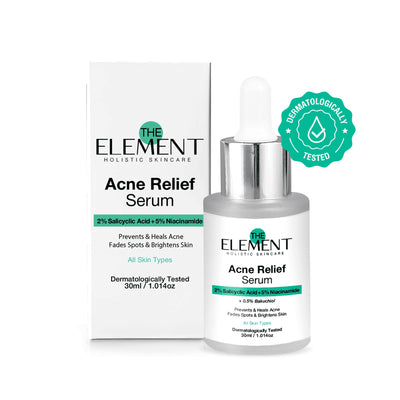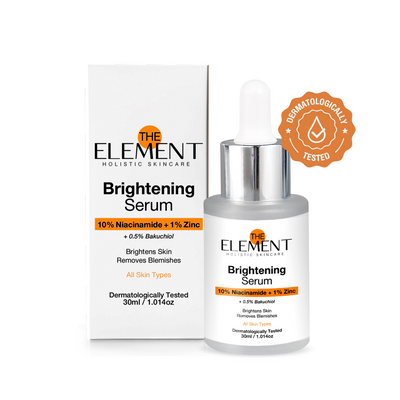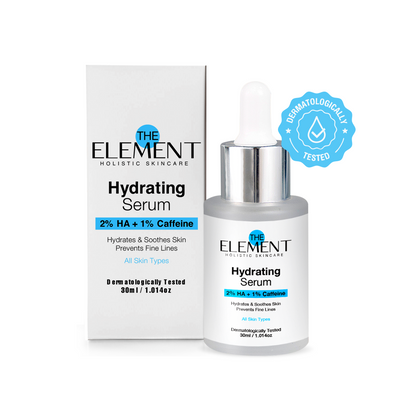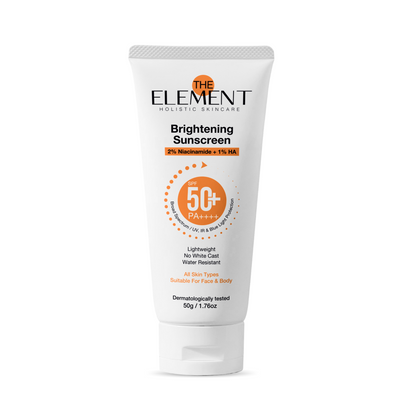Understanding and Treating Congested Pores for Clearer Skin

Congested pores are a common skin concern, leading to a bumpy texture and dull complexion. Understanding the causes, treatments, and preventative measures is crucial for achieving clear, healthy skin. This article will explore the ins and outs of congested pores, offering practical advice and expert insights to help you achieve a smoother, more radiant complexion.
What are Congested Pores?
Congested pores occur when pores become clogged with a mixture of dead skin cells, sebum (oil), and debris. This buildup can lead to various skin issues, including blackheads, whiteheads, and acne.
- Blackheads: Open comedones where the trapped oil and dead skin cells are exposed to air and oxidize, turning black.
- Whiteheads: Closed comedones where the pore is blocked, trapping the mixture beneath the skin's surface.
- Acne: Inflammation and infection of the clogged pore, leading to pimples and pustules.
Causes of Congested Pores
Several factors can contribute to congested pores:
- Excess Sebum Production: Overactive sebaceous glands produce more oil, increasing the likelihood of pore congestion.
- Inadequate Exfoliation: Without regular exfoliation, dead skin cells accumulate on the skin's surface, clogging pores.
- Poor Skincare Routine: Using comedogenic (pore-clogging) products can exacerbate congestion.
- Environmental Factors: Pollution, dirt, and makeup can accumulate in pores, leading to congestion.
- Hormonal Changes: Fluctuations in hormones, such as during puberty or menstruation, can increase sebum production.
Identifying Congested Skin
Recognizing congested skin is the first step toward effective treatment. Common signs include:
- Bumpy Texture: Skin feels rough and uneven to the touch.
- Visible Blackheads and Whiteheads: Small, dark or flesh-colored bumps are noticeable on the skin's surface.
- Enlarged Pores: Pores appear larger and more prominent, especially on the nose, chin, and forehead.
- Dull Complexion: Skin lacks radiance and appears lackluster.
- Increased Breakouts: Frequent occurrence of pimples and blemishes.
The Impact of Congested Pores on Skin Health
Congested pores not only affect the skin's appearance but also its overall health. Untreated congestion can lead to:
- Inflammation: Clogged pores can become inflamed, leading to redness and irritation.
- Acne Development: Congestion provides a breeding ground for bacteria, increasing the risk of acne breakouts.
- Scarring: Picking at congested pores can result in scarring and post-inflammatory hyperpigmentation.
- Reduced Product Efficacy: Clogged pores can prevent skincare products from penetrating the skin effectively.
Effective Treatments for Congested Pores
A consistent and targeted skincare routine is essential for treating congested pores. Here are some effective strategies:
Exfoliation
Regular exfoliation helps remove dead skin cells and unclog pores.
- Chemical Exfoliants: AHAs (alpha hydroxy acids) like glycolic and lactic acid, and BHAs (beta hydroxy acids) like salicylic acid, dissolve the bonds between dead skin cells, promoting exfoliation.
- Physical Exfoliants: Gentle scrubs or cleansing brushes can manually remove dead skin cells. Avoid harsh scrubs that can irritate the skin.
The Element 2% Salicylic Acid + 5% Niacinamide Serum
This serum is specifically formulated to target congested pores and improve skin clarity.
- Salicylic Acid: A BHA that penetrates pores to dissolve oil and dead skin cells, reducing congestion and preventing breakouts.
- Niacinamide: Also known as Vitamin B3, niacinamide helps regulate sebum production, reduce inflammation, and improve the skin's barrier function.
The Element 2% Salicylic Acid + 5% Niacinamide Serum combines these two powerful ingredients to provide a comprehensive solution for congested skin. It helps to unclog pores, reduce inflammation, and improve overall skin texture.
How to Use The Element Serum
- Cleanse: Start with a gentle cleanser to remove dirt and makeup.
- Apply Serum: Apply a few drops of The Element serum to the affected areas, focusing on areas with congested pores.
- Moisturize: Follow with a non-comedogenic moisturizer to hydrate the skin.
- Sun Protection: In the morning, always apply a broad-spectrum sunscreen with an SPF of 30 or higher.
Other Topical Treatments
- Retinoids: Prescription or over-the-counter retinoids can help increase cell turnover and prevent pore congestion.
- Clay Masks: These masks absorb excess oil and impurities from the pores, helping to decongest the skin.
- Charcoal Masks: Similar to clay masks, charcoal masks draw out impurities and toxins from the pores.
Professional Treatments
For stubborn or severe congestion, consider professional treatments:
- Facial Extractions: A trained esthetician can manually extract blackheads and whiteheads.
- Chemical Peels: Stronger chemical peels can provide deeper exfoliation and improve skin texture.
- Microdermabrasion: This procedure uses a special device to exfoliate the skin and remove dead skin cells.
- Laser Treatments: Laser treatments can target oil glands and reduce sebum production.
Skincare Routine for Congested Pores
A consistent skincare routine is crucial for managing and preventing congested pores. Here’s a sample routine:
-
Morning:
- Gentle Cleanser
- The Element 2% Salicylic Acid + 5% Niacinamide Serum
- Non-Comedogenic Moisturizer
- Broad-Spectrum Sunscreen (SPF 30 or higher)
-
Evening:
- Double Cleanse (Oil-Based Cleanser followed by Gentle Cleanser)
- The Element 2% Salicylic Acid + 5% Niacinamide Serum or Retinoid (alternate nights)
- Non-Comedogenic Moisturizer
Lifestyle and Dietary Considerations
In addition to skincare, lifestyle and dietary factors can influence skin health:
- Hydration: Drink plenty of water to keep the skin hydrated and support cell turnover.
- Diet: Avoid processed foods, sugary drinks, and excessive dairy, which can contribute to inflammation and sebum production.
- Hygiene: Avoid touching your face, and regularly clean your phone screen and makeup brushes to prevent the transfer of bacteria to your skin.
- Stress Management: Practice stress-reducing activities like yoga, meditation, or deep breathing exercises to minimize hormonal imbalances.
Expert Insights
"Maintaining a consistent skincare routine with targeted ingredients like salicylic acid and niacinamide is key to managing congested pores," says Dr. [Dermatologist's Name], a certified dermatologist. "Additionally, lifestyle factors such as diet and stress management play a significant role in overall skin health."
The Future of Congested Pore Treatments
The future of congested pore treatments involves innovative technologies and personalized skincare solutions. Advances in research and development are leading to:
- Targeted Delivery Systems: Encapsulation technologies that deliver active ingredients deeper into the pores for enhanced efficacy.
- AI-Powered Skincare: Personalized skincare routines based on individual skin analysis and data-driven insights.
- Biotechnology: The use of probiotics and prebiotics to balance the skin's microbiome and reduce inflammation.
Conclusion
Dealing with congested pores requires a comprehensive approach that includes a consistent skincare routine, targeted treatments, and healthy lifestyle habits. By understanding the causes and implementing effective strategies, you can achieve clearer, healthier skin. Incorporating products like The Element 2% Salicylic Acid + 5% Niacinamide Serum can significantly improve skin clarity and reduce congestion.
Ready to say goodbye to congested pores? Explore The Element Serum and start your journey to clearer skin today!
FAQ: Congested Pores
Q: What are the main causes of congested pores?
A: Congested pores are primarily caused by excess sebum production, inadequate exfoliation, poor skincare routines, environmental factors, and hormonal changes.
Q: How can I tell if I have congested pores?
A: Signs of congested pores include a bumpy texture, visible blackheads and whiteheads, enlarged pores, a dull complexion, and increased breakouts.
Q: How does salicylic acid help with congested pores?
A: Salicylic acid is a BHA that penetrates pores to dissolve oil and dead skin cells, reducing congestion and preventing breakouts.
Q: Can niacinamide help with congested pores?
A: Yes, niacinamide helps regulate sebum production, reduce inflammation, and improve the skin's barrier function, all of which can help with congested pores.
Q: How often should I exfoliate my skin?
A: Exfoliate 2-3 times per week, depending on your skin type and sensitivity. Avoid over-exfoliating, which can irritate the skin.
Q: What should I look for in a non-comedogenic moisturizer?
A: Look for moisturizers that are oil-free and specifically labeled as non-comedogenic, meaning they are formulated not to clog pores.
Q: Are there any lifestyle changes that can help with congested pores?
A: Yes, staying hydrated, maintaining a healthy diet, practicing good hygiene, and managing stress can all help improve skin health and reduce congestion.
Q: When should I see a dermatologist for congested pores?
A: If you have severe or persistent congestion, or if over-the-counter treatments are not effective, consult a dermatologist for professional advice and treatment options.




